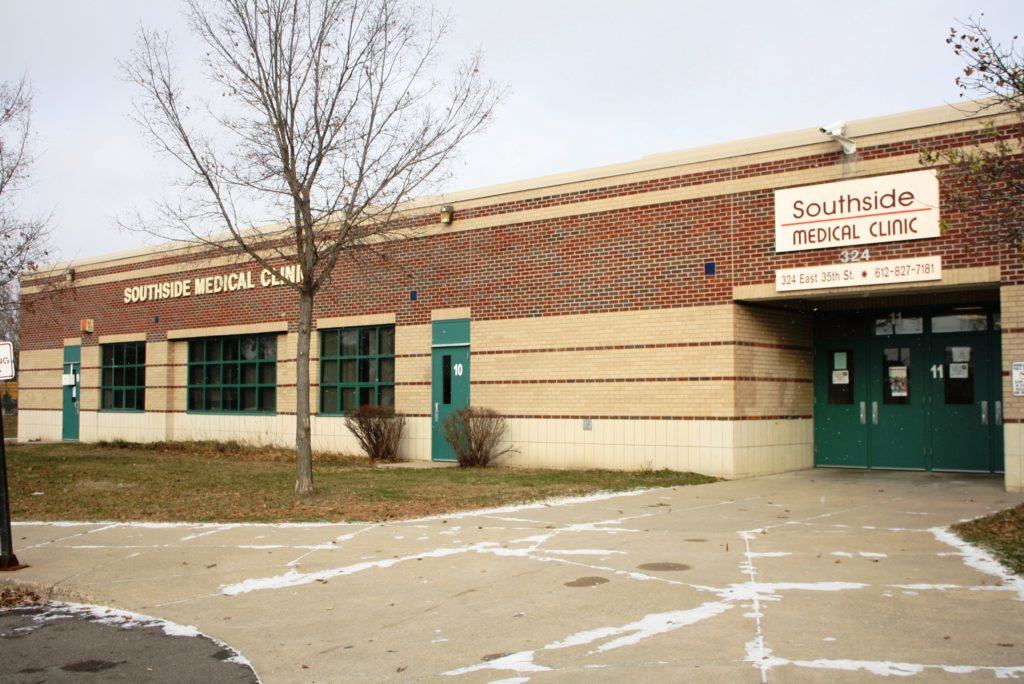ADVERTISEMENT
By Brandi D. Phillips
Contributing Writer

Southside Community Health Services is an organization with a long history of serving the community. Director of Development and Communications Autumn Chmielewski told the MSR, “We are a clinic that has been serving the South Side of Minneapolis and local areas for 45 years.
“We actually started out as a free volunteer clinic in the 1970s. Over time, we have just continued to grow as the need for acceptable, affordable, and professionally competent services have grown in and around our community,” said Chmielewski.
“We started out pretty [much using] volunteers with basic limited medical services,” she continued. “Today, 45 years later, we have comprehensive medical, dental and vision [services]. We have a lot of specialty services including dermatology, OBGYN; we have an allergist and an oral surgeon.
“We also have an active and robust outreach team that serves thousands and thousands of people each year with free health screenings, education and referrals. So, we have just continued to grow and fill in that special niche for people who have insurance but cannot afford copays and deductibles, or people who really have no insurance.”
Southside Community Health Services (SCHS) is open to everyone, and they provide a lot of their services on a sliding fee scale (based on family income). For a lot of patients, the sliding fee scale can lead to many patients getting services provided free. Along with the increasing range of services provided by the clinic, the number of patients and communities served have continued to grow as well.
The clinic, which began as a small storefront on East Lake Street, was started “by three VISTA (Volunteers in Service to America) women. [In the beginning], these women really saw a need for health care,” said Chmielewski. “We were at a time when we had passed equal rights legislation and the Civil Rights Act, but accessing quality care was still so difficult for minority and marginalized populations, [and] these women were seeing the scenes [of inadequate care] played out every day in South Minneapolis.”
Chmielewski continued, “In the early days, we got a lot of help from Abbott Northwestern Hospital and the Allina Health Systems. They provided a lot of services, and a lot of volunteers came from those systems.”
Asked what the future looks like for SCHS, Clarence Jones, director of outreach for the organization for the last 14 years, responded, “We see our organization as going to be more community engaged. We are going to do more listening to the community as to what its needs are and creating programming.
“Besides the biomedical portion, our community engagement portion is beginning to grow,” said Jones. “I see it growing as a sense of collaboration with other community organizations and community clinics to better serve the population that we have, because the needs are greater. So, we are trying to figure out how [we can] work more collectively and collaboratively with people.”
SCHS has a medical mobile unit, Q-Mobile, that provides outreach into the community. Last year, Jones said, “We provided 25,000 free health screenings to the community.” Southside Community Health Services has also created a community garden that helps feed the surrounding neighborhood. Overall, this people-serving organization wants to be more community-engaged and collaborate more with other agencies doing related work. They also want to develop a training ground for future healthcare practitioners.
Chmielewski said, “There is a growing body of evidence in the healthcare field around health disparities and social determinants of health. So, definitively we know that only about 20 percent to 30 percent of health can be controlled and influence by what happens in your doctor’s office.
Everything else is environmental: It happens at work, it happens at home, it happens at school, it happens in the community. So when we talk about collaboration, it really is essential to improving all health.
“It is just not enough for us to sit in the exam room and talk about changing eating patterns and prescribing medications, because we know that does not work. So, when we talk about the collaborative piece, it ties into social determinants of health and addressing health disparities in a new and innovative way.”
Jones added, “It is also very important to use the term ‘public health,’ which is the overall health of the community.” The organization is into looking at public health and how to make the population healthier. “It is truly important to us. It forces us out of our silo. It forces us to not only look at one group of people, but to be concerned about our community [as a whole]”, Jones continued.
SCHS also provides services to the community using student nurses. They specifically work with Metro State University, St. Mary’s University, and Minneapolis Community and Technical College along with other colleges to provide client-friendly, culturally competent services.
In terms of racial and health disparities, Jones has noticed that “Communities are getting sicker, and that is a problem. That is why we have to create programs and a safety net for people who are underserved and unserved and create the opportunity for them to understand that they can have access to medical services.”
For further information, call Southside Community Health Services at 612-821-2788 or visit their website, www.soutsidechs.org.
This story was made possible by a grant from the Medtronic Foundation.
Brandi D. Phillips welcomes reader responses to bphillips@spokesman-recorder.com.
